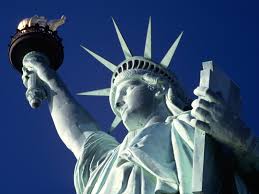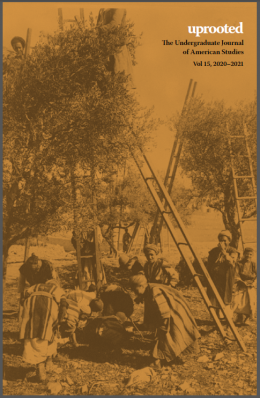Going Nuclear: A Symposium on American Nuclear Politics
Thursday, April 12th, 2018
| Date | Time | Location |
|---|---|---|
| Thursday, April 12, 2018 | 8:30AM - 1:00PM | The Vivian and David Campbell Conference Facility, 1 Devonshire Place (Devonshire Pl. & Hoskin Ave.) |
Description
At the heart of American nuclear power lies a paradox: Although the United States participated in and propelled a nuclear arms race, no other country has expended more resources in seeking to limit the proliferation of nuclear weapons. Why did the United States pour energy into arms control, disarmament, and non-proliferation agreements, in an effort to limit the very weapons it relied upon so heavily? Why does it continue this pattern today?
Timothy Andrews Sayle, the CSUS Bissell-Heyd Research Faculty Fellow, has convened a symposium to discuss and explore the past, present, and future of U.S. nuclear proliferation and non-proliferation policy. Historians, political scientists, and practitioners will explore American policy over time and place, including discussion of U.S. nonproliferation policy in NATO, the United Nations, and in key regional areas: the Middle East, South Asia, and the Korean Peninsula.
There are two separate registration lists for this event. For the morning symposium, please register here. For the afternoon keynote presentation by Prof. Francis J. Gavin, please register for the event titled “Rethinking the Nuclear Revolution and American Grand Strategy.”
MORNING SYMPOSIUM AGENDA:
8:30am-9:00am Registration and Coffee
9:00am-10:45am Panel 1: Institutions
Katie Davis, UofT, “How Does it All Add Up?: Nuclear Proliferation and the United Nations, 1946-1949.”
Susie Colbourn, UofT, “Nuclear Sharing, Non-Proliferation, and the Dilemmas of NATO’s Nuclear Guarantee.”
Amb. Paul Meyer, Simons Foundation, “The Canadian Government’s Reaction to the Nuclear Weapon Prohibition Treaty.”
Prof. Tom Nichols, Naval War College, “Back to the USSR?: America’s Bilateral Dilemmas.”
10:45am-11:15am Coffee Break
11:15am-12:45pm Panel 2: Regions
Prof. Jayita Sarkar, Boston University, “Nuclear Dominoes in Asia: Tarapur, the Chinese Explosion, and India’s Plutonium Plant, 1961-1964.”
Dr. John S. Park, Harvard University, “The North Korean Nuclear Crisis – Are We Headed Toward a Second Korean War?”
Dr. Farzan Sabet, Graduate Institute Geneva, “The Other Iran Nuclear Negotiations: U.S.- Iran Nuclear Negotiations under Jimmy Carter, 1977-78.”
About the speakers:
SUSAN COLBOURN, University of Toronto:
Susan Colbourn is completing her Ph.D. in history at the University of Toronto, where she is a fellow at the Bill Graham Centre for Contemporary International History. Her current research focuses on NATO’s internal debates about détente and their impact on allied nuclear policy in the 1970s and 1980s. In September, she will take up a Henry Chauncey Jr. ‘57 postdoctoral fellowship at Yale University.
KATIE DAVIS, University of Toronto:
Katie Davis is a PhD Candidate in History and a Connaught International Scholar at the University of Toronto. Her research examines the transatlantic relations in the early Cold War, the popular culture of the atomic age, and the relationship between public opinion and foreign policymaking. She holds an MSc in Theory and History of International Relations from the London School of Economics and Political Science.
PROFESSOR TOM NICHOLS, U.S. Naval War College:
Tom Nichols is a professor of National Security Affairs at the U.S. Naval War College and an adjunct professor in the Harvard Extension School. He also taught at Dartmouth College, Georgetown University (where he also received his PhD), and other schools and lecture programs. He is currently a Senior Associate of the Carnegie Council on Ethics and International Affairs, and a Fellow of the International History Institute at Boston University. He has also been a Fellow of the International Security Program and the Project on Managing the Atom at the Belfer Center for Science and International Affairs at the John F. Kennedy School of Government at Harvard University. In his Washington days, Tom was a fellow at the Center for Strategic and International Studies, a consultant to the U.S. government, and a research analyst for private industry. Later, he served as personal staff for foreign and defense affairs to the late U.S. Senator John Heinz of Pennsylvania. He is also a five-time undefeated Jeopardy! champion, and as one of the all-time top players of the game, he was invited back to play in the 2005 Ultimate Tournament of Champions. (He was crushed immediately, so apparently, his ranking among the top 100 players was #100.) A native of the Commonwealth of Massachusetts, he recently moved from the gorgeous harbor in Newport, Rhode Island, where he found a cat named Carla, to his country estate a few miles away, with a yard where he can smoke a cigar now and then.
AMBASSADOR (ret.) PAUL MEYER, The Simons Foundation:
Paul Meyer is Senior Fellow in Space Security at The Simons Foundation, as well as Adjunct Professor, School for International Studies, and Fellow in International Security, Centre for Dialogue, at Simon Fraser University in Vancouver, Canada, and Chair of the Canadian Pugwash Group. He joined the then Department of External Affairs in 1975 as a Foreign Service Officer and served abroad in Oslo (1976-1978), Moscow (1982-1984) and Brussels (1988-1992) where he was Political Counsellor in Canada’s delegation to NATO. From 1992-1997, he served at the Embassy in Washington D.C. as Minister-Counsellor (Political) and from 2001-2003 as Minister and Deputy Head of Mission at the Embassy in Tokyo.
In Ottawa, Mr. Meyer has held a variety of positions at the Department of Foreign Affairs and International Trade, primarily in the field of international security policy. He was Director-General of the International Security Bureau from 1998-2001. From 2003 to 2007, Mr. Meyer served as Ambassador and Permanent Representative to the Office of the United Nations and the Conference on Disarmament in Geneva. His responsibilities spanned a variety of issues and organisations including human rights, humanitarian affairs, global health and disarmament. From 2007 to his retirement from the Foreign Service in September 2010, Mr. Meyer served as Director General of the Security and Intelligence Bureau at DFAIT.
Professor JAYITA SARKAR, Boston University:
Jayita Sarkar, an historian by training, is Assistant Professor of International Relations at Boston University’s Frederick S. Pardee School of Global Studies. Her expertise is in the global Cold War in South Asia, nuclear proliferation, and U.S. foreign policy. Her research has appeared or is forthcoming in the Journal of Cold War Studies, Journal of Strategic Studies, Nonproliferation Review, Cold War History, International History Review, and elsewhere. Prof. Sarkar has held fellowships at MIT, Harvard and Yale universities, and obtained a doctorate in International History from the Graduate Institute Geneva in Switzerland. At Boston University, Dr. Sarkar teaches courses on U.S. policies in South Asia after 1947, history of international relations after 1945, and international nuclear politics.
Dr. JOHN S. PARK, Harvard University:
Dr. John Park is an Asia security analyst at the Harvard Kennedy School, where he serves as Director of the Korea Working Group and Adjunct Lecturer in Public Policy. He was the 2012–2013 Stanton Nuclear Security Junior Faculty Fellow at MIT’s Security Studies Program. He previously directed Northeast Asia Track 1.5 projects at the U.S. Institute of Peace in Washington, DC. Prior to that he worked at Goldman Sachs and The Boston Consulting Group. He regularly provides commentary on CNN, CNBC, BBC, and Bloomberg. His writings have appeared in The Wall Street Journal, The New York Times, and The Financial Times. His recent publication is a co-authored study titled “Stopping North Korea, Inc.: Sanctions Effectiveness and Unintended Consequences.” He recently testified on North Korea sanctions before the Senate Banking Committee, as well as the House Financial Services Committee. Dr. Park received his M.Phil. and Ph.D. from the University of Cambridge. He completed his pre-doctoral and post-doctoral training at Harvard Kennedy School’s Belfer Center. He received his B.A. from Trinity College at the University of Toronto.
Dr. FARZAN SABET, The Graduate Institute, Geneva:
Farzan Sabet is a Postdoctoral Fellow at the Global Governance Centre at the Graduate Institute, Geneva. His postdoctoral project is entitled “Bombs, Banks and Sanctions: A Sociology of the Transnational Legal Field of Nuclear Nonproliferation.” He previously held a Nuclear Security Predoctoral Fellow at the Center for International Security and Cooperation (CISAC) and holds a Swiss National Science Foundation (SNSF) Doctoral Mobility Fellowship. His research focuses on the Iranian nuclear program, its evolving relationship with the global nonproliferation regime, and U.S.-Iran relations. Farzan is also a co-founder and managing editor at IranPolitik, a website on key issues in Iranian foreign policy and domestic politics. His work on Iranian politics has also appeared in The Washington Post “Monkey Cage,” The Atlantic, and War on the Rocks, among other outlets.
If you are attending a Munk School event and require accommodation(s), please email the event contact listed above to make appropriate arrangements.
Disclaimer: Please note that events posted on this website are considered to be public events – unless otherwise stated – and you are choosing to enter a space where your image and/or voice may be captured as part of event proceedings that may be made public as part of a broadcast, webcast, or publication (online and in print). We make every effort to ensure your personal information is kept and used in compliance with the Freedom of Information and Protection of Privacy Act (FIPPA). If you have any questions please get in touch with our office at munkschool@utoronto.ca or 416-946-8900.

